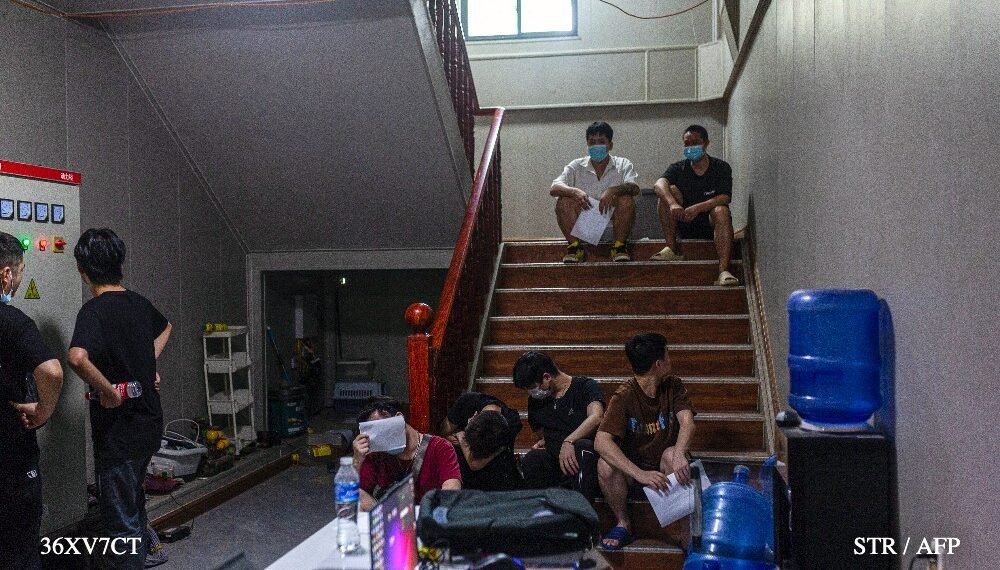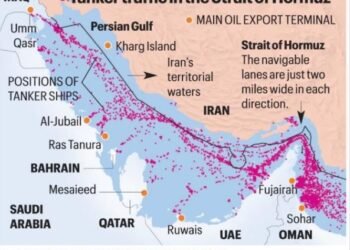In a bold move, authorities in Myanmar have launched a massive operation targeting scam compounds that lure foreigners into online fraud schemes. The planned deportations, set in daily batches, could upend a multi-billion-dollar fraud industry.
BY PC Bureau
A Myanmar ethnic militia announced on Saturday that it is set to deport 10,000 individuals tied to cyber scams from the territory it controls to Thailand. The move is part of a vigorous crackdown on scam compounds that have proliferated along Myanmar’s borderlands. These compounds, often staffed by trafficked foreigners, are implicated in large-scale online fraud operations worth billions of dollars.
Major Naing Maung Zaw, spokesman for the Kayin Border Guard Force (BGF), stated, “We have declared our intent to eliminate all scams from our soil, and we are now executing that plan.” He added that a comprehensive list has been compiled and the deportation process is scheduled to proceed in daily groups of 500. Already, 61 individuals have been escorted across a border bridge into Thailand, and preparations are underway to transfer roughly 500 people of diverse nationalities each day.\
Meiteis group in USA urges Modi to Visit Manipur, see the Humanitarian Crisis
ALSO READ: From Paris Hilton to Kanye West: The Story of Kevin Blatt’s Scandalous Fixes
Thai authorities in Tak province have coordinated with BGF leaders, with reports indicating that up to 7,000 workers from these illicit operations are expected to be received by Thai border security. On Friday, BGF soldiers were seen patrolling workplaces at Shwe Kokko, a prominent scam compound in eastern Myawaddy township, Kayin state. Shwe Kokko has rapidly evolved into a built-up urban enclave amidst surrounding agricultural lands, underscoring the stark contrast between illicit urbanization and rural life.
Thousands of youngsters are tricked into bogus jobs, typically lured by tantalizing offers of good salaries in Thailand but end up in rural Myanmar with organized online scam centers. Victims are then pressed into conducting online criminal activities, ranging from love scams,… pic.twitter.com/k2x0M1ihEi
— ARTS TV: African Renaissance Television Services (@ArtsTvWorld) February 15, 2025
Cyber scam hubs like Shwe Kokko lure hopeful individuals from around the globe with promises of high-paying jobs. Once ensnared, many find themselves effectively held hostage, coerced into online fraud under the threat of severe punishment. In recent months, both Myanmar and Thai authorities, along with local militia groups, have intensified raids on these centers—facilitating the release and repatriation of numerous foreigners. These centers have also been linked to drug smuggling and gambling networks.
A pro-junta Myanmar militia hosting extensive online fraud operations in its zone on the Thai border has said it will deport 8,000 scam center workers, most of them Chinese, from its area as it seeks to close down illegal activities.#Myanmar #Scam https://t.co/pooybz5cy5
— Radio Free Asia (@RadioFreeAsia) February 13, 2025
ALSO READ: Meiteis group in USA urges Modi to Visit Manipur, see the Humanitarian Crisis
In a related development, Thai police reported the deportation of 10 Chinese nationals on Saturday. These individuals were connected to a high-profile case involving the alleged kidnapping of an actor, who was subsequently rescued from a cyber fraud center in Myawaddy. The suspects, part of a gang operating south of Shwe Kokko, were accused of defrauding Chinese citizens. Additionally, over 250 foreign nationals from more than a dozen countries were rescued from an online scam center in Kyauk Khet—located approximately 50 kilometers south of Shwe Kokko—and were handed over to Thai authorities on Wednesday.
BGF Major General Saw Chit Thu remarked in a statement on Thursday that the militia is actively “identifying, arresting, and suppressing human traffickers and fraudsters who are illegally operating within investment projects in our region.” This latest operation reflects a broader effort by Myanmar’s ethnic militias to dismantle the criminal networks that exploit vulnerable populations along their borders.














